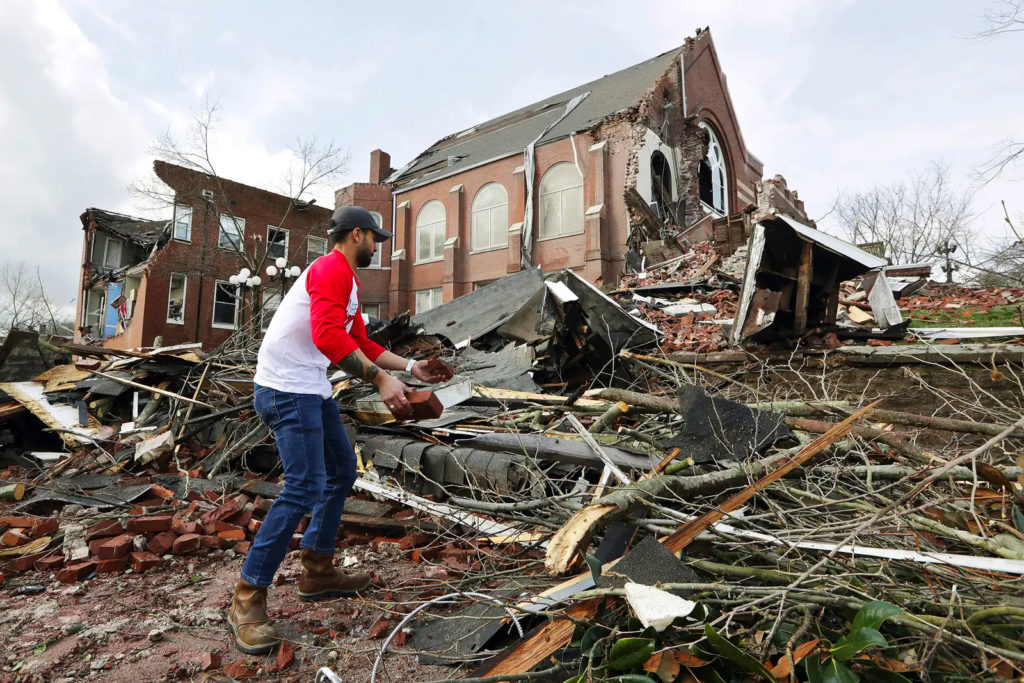This week we began offering Zoom calls for our pastors to come together to share ideas, encourage one another and pray for each other. We have had at least six of these calls this week, many through our Together Groups, and I have been furiously writing all the amazing ideas I have heard. Each week I will share some of the best ideas so that we can all be encouraged. Along with the Together Group calls, we will also be offering a Pastor Zoom Call every Tuesday at 2pm CST for all of Converge MidAmerica. Just follow this link to join us: https://zoom.us/j/613566293
Online Streaming of Worship Had Significant Impact
One church of 25 had 290 views. Another church of 200 had 1300 views. A new church plant that has an existing online strategy, went from 75 regular views to 500.
Many of the anecdotal statistics is that our church members were inviting their friends to check out their services and they did!
Many streaming services and platforms are being used. Along with Facebook Live, services like Sling Studios, DaCast and LifeChurch were all mentioned.
The Way We Stream Our Services Is Already Shifting
Many are finding that using the worship team for music does not necessarily translate well online. Using a Spotify playlist, YouTube worship videos, or simply having one song to open in a more acoustic format seems to be as or more effective.
A live sermon from an empty worship center may not necessarily be the best format. Pre-recording your sermon and making it more relaxed from your office or other location and moving from a preaching style to a more teaching style is gaining some good traction.
We were all taught to think of our sermons not as a monologue, but a dialogue. Pastors are using that concept to actively engage with their people in their sermon. Assign someone to handle the comment section from their streaming to keep prayer and conversation going. One church had 200 engagement comments last Sunday and are going to encourage families to take selfies and post them in the comment section so that they can engage even better (and take attendance ☺).
Online Giving Is Not Nearly As Costly As Not Giving
Churches that have been practicing online giving are finding that their church’s giving has remained pretty stable. One church had their top donor begin to give electronically!
Pushpay, Tithely, Givelify, Paypal are just some of the companies to investigate. Each have similar cost structures and are easy to integrate.
Caring For Your People During the Quarantine Looks Different
Unleash your small group ministry to care for people in their groups and beyond. (This obviously needs to be carefully thought through).
Some churches are splitting up their congregation, calling it a “Care Network” and calling each family once a week to check on them and to pray.
Many churches are calling their local school districts, food pantries and government agencies to see how the church can help. They are seeing great receptivity.
One pastor is doing “Chipotle on the Porch”. He is inviting two to three men at a time do have Chipotle lunch with him on his porch.
Churches have set up a “help” page on their websites where people can connect with practical help. One example can be found on https://villagepoint.church/help
Other Great Ideas
Beginning Sunday, it will be 21 days until Easter. Using one of Converge MidAmerica’s 21 Day books, or other prayer tools like Seek God For the City are ways to focus your congregation’s prayer times.
Don’t forget that you can always have online prayer meetings!
Do a daily check-in (devotional) video with your church. This need not be over 4-5 minutes.
Use Zoom, Google Hangouts, Skype, etc. to bring your children and youth ministries together. Have your kids’ Sunday School or Awana leader do a Zoom call with their class. Tell me kids wouldn’t LOVE that!
Quotes From Week One
“When we pray for revival, are we really ready for what that means?”
“What if Easter ended up being on May 3?”
(We need to prepare for unprecedented numbers at our churches once the quarantine is lifted.)
“The church is not a building we go to, but a movement we are a part of.”
I believe we are being given by God an unprecedented opportunity to be the hands and feet of Jesus in these days. Don’t forget, we are the church, and we carry the only true hope of this world, the gospel of Jesus! Let’s pray that through the churches of Converge MidAmerica, the gospel will go out with increased power and fervency!
Hebrews 10:25 “Let us not forsake meeting together, as some are in the habit of doing, but let us encourage each other, and all the more as we see the Day approaching.”
We love you all!
Bryan Moak











